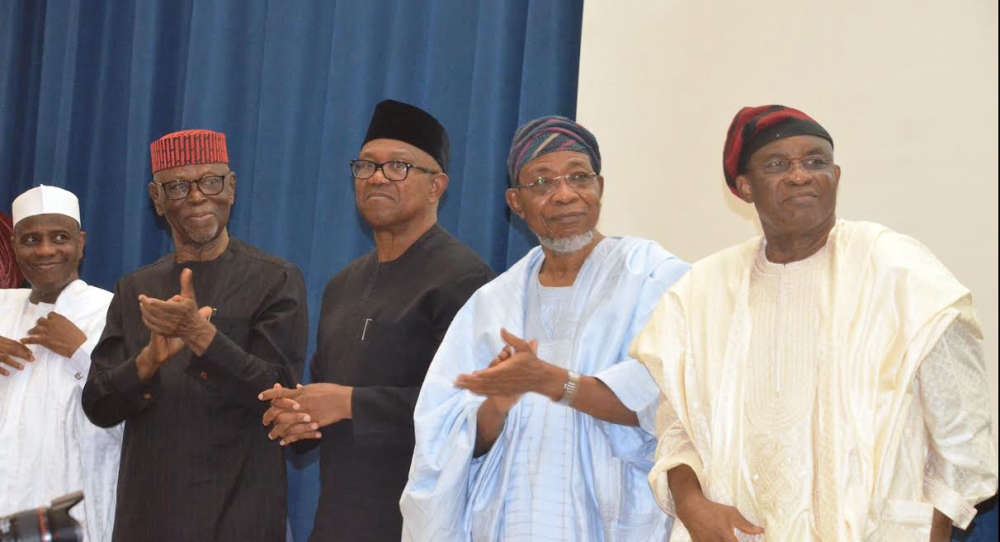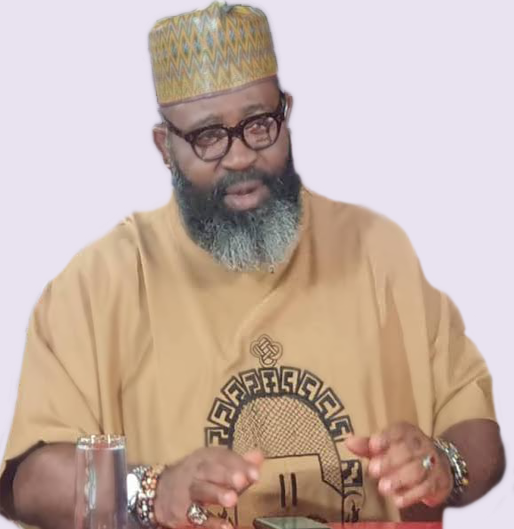Last Saturday, The Nigerian Network (TNN) hosted one of its most powerful X Spaces yet — a riveting 45-minute conversation with political thinker and fearless advocate for justice, Prof Chris Nwaokobia Jnr.
With Nigeria at a critical political juncture, and a new coalition forming to challenge the dominance of the APC in 2027, the conversation couldn’t have come at a better time. As millions watched the news of Peter Obi, Atiku Abubakar, Nasir El-Rufai and others teaming up under the ADC platform, we gathered with Prof Chris to unpack what this really means for the future of Nigeria.
What’s Happening?
On the 2nd of July 2025, a new opposition coalition adopted the African Democratic Congress (ADC) as its political platform to unseat President Bola Ahmed Tinubu and the APC in the 2027 elections. The coalition includes prominent figures from the PDP, Labour Party, and disaffected APC members, with David Mark and Rauf Aregbesola serving in interim leadership roles.
The mission? To address Nigeria’s core issues: poverty, insecurity, economic decline — and to do so with competent leadership and a focus on national unity. This coalition, if successful, could represent the first major threat to APC dominance since 2015.So, Is This Nigeria’s Turning Point or Just Another Elite Pact? Prof Chris didn’t waste time addressing the elephant in the room.
“This is not just political. This is deep and organic.”
According to him, this coalition isn’t a vanity project or opportunistic merger. It is an organic outgrowth of national frustration, grassroots mobilisation, and the desire for change. “To fix Nigeria, we must unite — not agonise. Politics isn’t for saints or sinners. It’s for all of us because what happens with power affects every Nigerian. “His call was one of pragmatism and urgency. He urged Nigerians to abandon cynicism and work collectively for political rebirth.

The Role of the Obidient Movement
Prof Chris was emphatic that the Obidient Movement remains a central force in shaping this political moment. “The Obidient Movement remains the most organic political movement in Africa. You don’t kill something that pure. You grow it.” For him, Peter Obi still represents hope, but he stressed that no one person can deliver Nigeria alone. What matters is collective resolve and movement-based leadership. “Hope must remain alive in Peter Obi’s presence. But this is bigger than one man.”
He encouraged the movement to channel its energy towards creating a sustainable political culture, not just electoral wins.
The Roadblocks and the Critics : The conversation didn’t shy away from the coalition’s growing pains. Internally, there’s friction: ADC factions has called the new alliance an “imposed arrangement.” Externally, voices like Omoyele Sowore and Nyesom Wike have mocked its viability. Even some law makers have dismissed it as “doomed.”
Prof Chris was blunt: “If we fail to take back our country in 2027… my God, I don’t know what we’ll have on our hands.” He reminded the audience that the APC’s victory in 2013 was forged in clear strategy, national focus, and gritty ground game. The new coalition, he insisted, must do more than replicate that model — it must transcend it. “We can’t afford to be reactive. We need intentional planning, grassroots engagement, and a clear narrative.”
Unity, Not Uniformity: One of the most profound parts of the discussion came when Prof Chris addressed fears that the coalition would break under the weight of its own egos and ambitions. “We must stop waiting for perfect conditions or perfect leaders. What we need is courage, unity, and commitment to the Nigerian dream.” This is no time for political spectatorship, he warned. Every Nigerian, regardless of their tribe, religion, or political leaning, has a stake in what happens in 2027. “No need to throw stones at efforts” he said.
“We must focus on the redemption of a country first — popularity and ego second.” He also added that unity does not mean uniformity. Diverse opinions should be seen as a strength, not a liability. 1999 and the Lessons of the Past Reflecting on the last 26 years, Prof Chris drew lessons from the 1999 political transition that birthed the Fourth Republic.
“In 1999, the elite forged a consensus to exit military rule, but the masses had little say in the architecture of power. This time must be different.” He warned against repeating the mistakes of the past, where coalitions formed around personalities, not principles. The new coalition, he stressed, must be values-driven, people-focused, and deeply democratic.
Project Save Nigeria: From Talk to Action As the evening closed, Prof Chris issued a clarion call: “This is Project Save Nigeria. Get involved or get left behind. “His message was clear: this is not a moment for fence-sitting. It’s a defining chapter in the story of our democracy. Whether this coalition becomes a milestone or a missed opportunity depends on how well citizens, movements, and leaders can align behind one cause: A New Nigeria.
“No one is coming to save us but us. The tools are in our hands. “He challenged diaspora Nigerians to contribute ideas, resources, and pressure, while urging youths at home to rise beyond social media engagement and hit the streets with strategy.
What’s Next? At The Nigerian Network, we believe in more than just analysing history we want to help make it. This is why we host these powerful x-Spaces, to elevate national voices, and connect Nigerians with Nigeria. If you missed this session with Prof Chris, we encourage you to listen to the replay, read the highlights, and most importantly engage. Share your thoughts, share the vision, and share the belief that a New Nigeria is not just possible it is necessary.
You can listen to the full TNN X-space via this link : Power Shift or Power Play ?
Follow @TNNbroadcast on X for more updates.

